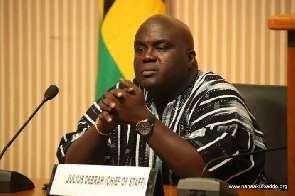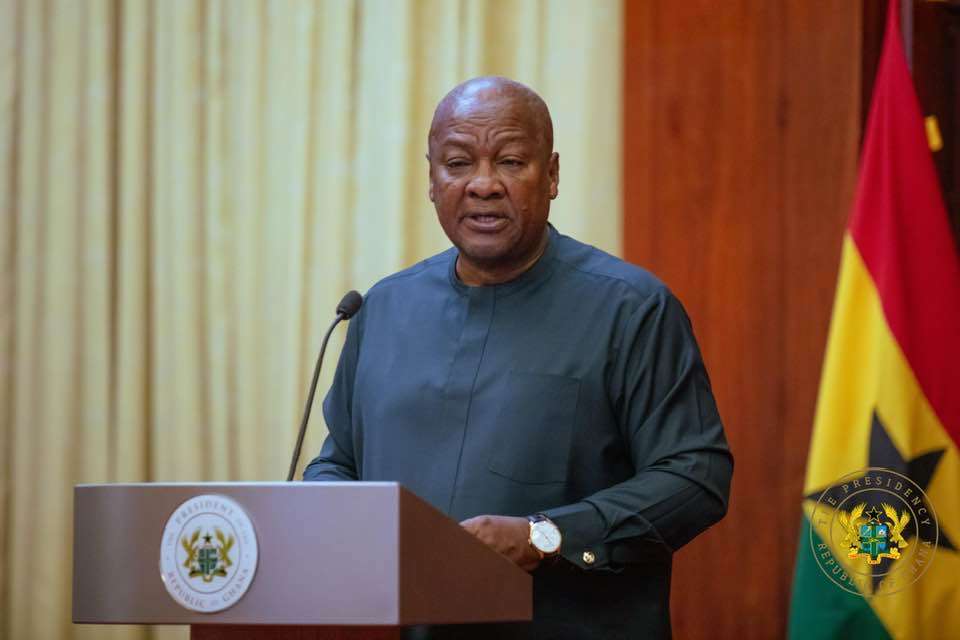The Trades Union Congress (TUC) Ghana has strongly condemned the government’s decision to revoke all public sector appointments made after December 7, 2024.
In a statement signed by its Secretary-General, Joshua Ansah, the TUC described the directive as problematic and open to abuse.
The TUC’s statement responds to a letter issued by the Chief of Staff on February 10, 2025, instructing all heads of government institutions to annul any appointments made after the December 7, 2024, general elections.
The letter stated that these appointments were inconsistent with good governance practices, effectively rendering them invalid.
However, the directive has sparked widespread controversy, with concerns about its fairness, legal standing, and implications for young Ghanaian workers who have secured jobs through due process.
The union questioned the rationale behind the decision, arguing that the government’s claim that all such appointments and recruitments violate good governance principles is flawed.
“Following the directive, we have received reports of mass revocation of appointments including appointments that were done before December 7, 2024.
“In some of the organisations people who have been on contract for 5 years or more and whose appointments were only regularised in December 2024 have been terminated losing even their contract status. This must be heart-breaking for these young men and women who are likely to be entering the labour market for the first time.”
Secretary-General, Joshua Ansah, TUC
The TUC expressed deep concern over the plight of affected employees, particularly young professionals entering the job market for the first time. The union described this situation as “heartbreaking” and warned of its potential socio-economic repercussions.

Midnight Appointments
Furthermore, the TUC highlighted the recurring trend of political transitions affecting public sector employment in Ghana.
It noted that both the National Democratic Congress (NDC) and the New Patriotic Party (NPP) have historically engaged in what is often referred to as “midnight appointments” – a practice where outgoing administrations make last-minute job placements before leaving office.
The union criticized the inconsistency of both parties, pointing out that while the NPP strongly opposed President John Dramani Mahama’s late appointments in 2016, it has now engaged in a similar practice.
“In 2016, when H.E. John Dramani Mahama met with the Ghana Catholic Bishops Conference after the elections he insisted that he remained the President and was responsible for steering the affairs of the country until he officially handed over power on January 7, 2017.
“He appointed new Commissioners for CHRAJ and NCCE and a new Auditor General. He even increased allowances for National Service Personnel. The NPP vehemently protested and condemned these actions by President Mahama. In a statement on December 21, 2016, the Head of NPPs Transition Team, Yaw Osafo Marfo described Mahama’s appointments as “most disappointing and exhibits bad faith”.
Secretary-General, Joshua Ansah, TUC
However, the TUC argued that the NDC, now in power, has gone beyond condemning its predecessor’s actions by actively reversing appointments, leading to job losses for thousands of public sector employees.
The union expressed concern that this cycle of partisan-driven appointment reversals undermines the credibility of Ghana’s democratic governance and erodes confidence in the public service.
Calls for Compassion
Calling on President Mahama to immediately halt the ongoing terminations, the TUC emphasized the devastating impact of these job losses, particularly on teachers, nurses, and other professionals who have already struggled to secure employment.

The union warned that terminating these appointments not only affects individual livelihoods but also weakens the nation’s workforce by dismissing qualified personnel who have undergone the necessary recruitment processes.
Moreover, the TUC urged President Mahama to grant amnesty to all affected employees, similar to the amnesty extended to recruits currently undergoing training in the various security agencies.
The union stressed that such a decision would set a precedent for political reconciliation and stability in Ghana’s public sector employment system. “This will be the greatest political settlement of the 4th Republic. It will ripple in eternity and reset the politics of Ghana,” the statement concluded.
The revocation of public sector appointments remains a contentious issue, with political stakeholders offering differing perspectives.
While government officials justify the move as necessary for ensuring good governance, critics argue that it unfairly penalizes workers who have legally secured employment.
The public debate surrounding this issue is expected to intensify as labour unions, affected employees, and political commentators continue to weigh in on the implications of the government’s directive.
For now, the TUC’s firm stance signals a broader labour movement pushback against what it describes as politically motivated job dismissals.
READ ALSO: A Win-Lose Scenario Brews for Ukraine























